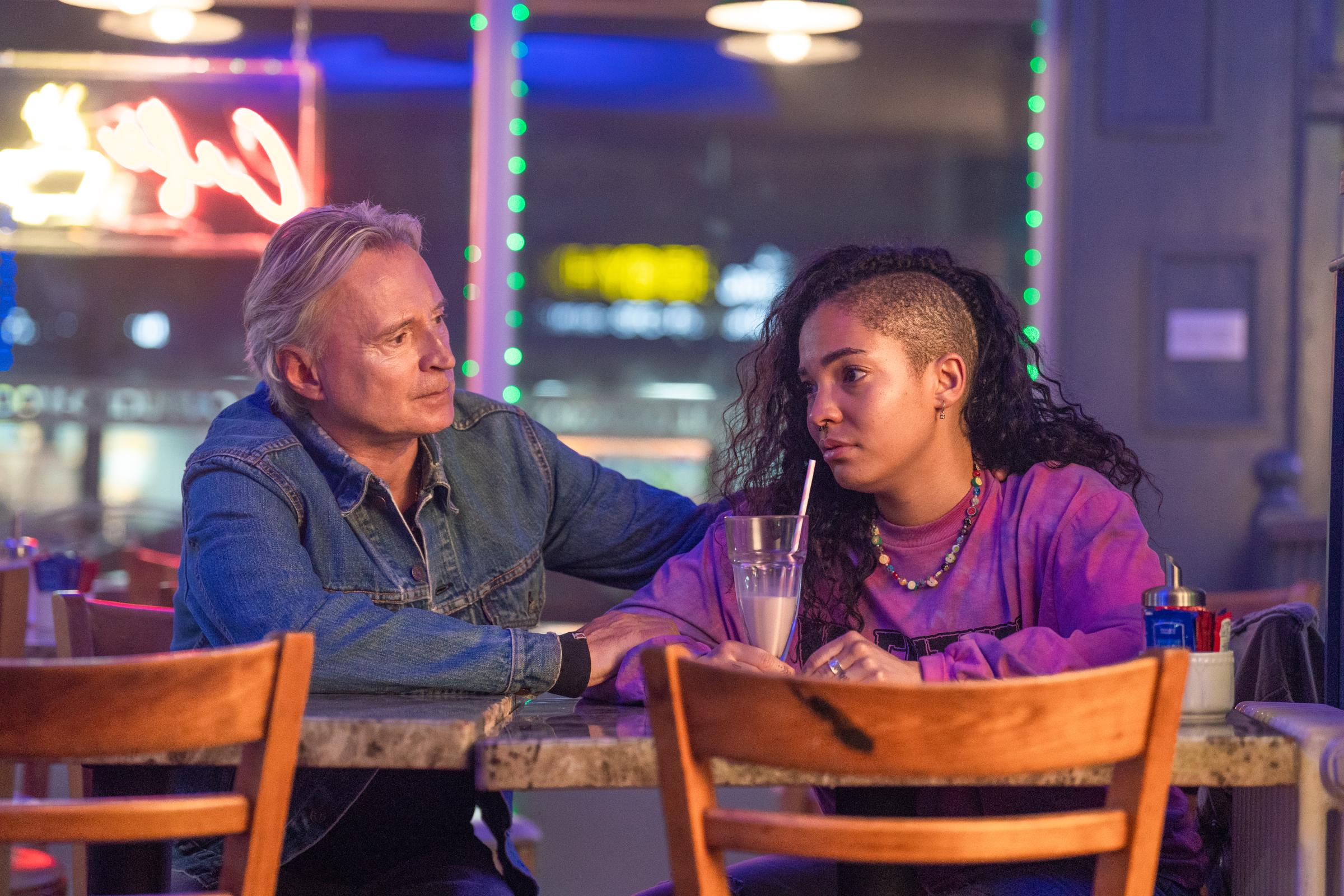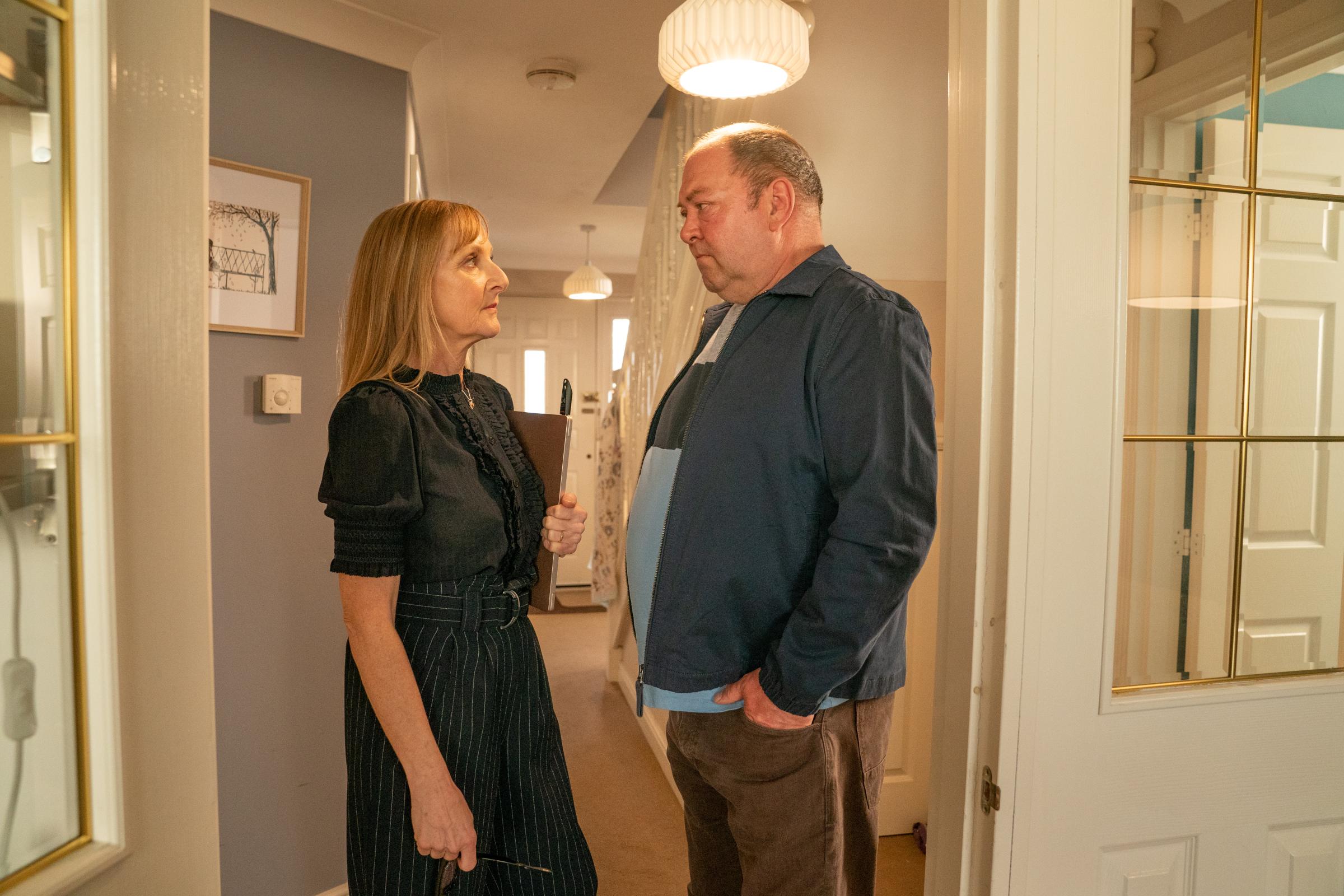FX’s The Full Monty is probably not what you’re expecting. An eight-episode sequel to the 1997 British film turned cultural phenomenon about a ragtag crew of laid-off Sheffield steelworkers who form a Chippendales-style—except, as the title implies, fully nude—male revue would, you might fairly presume, have something to do with stripping. It doesn’t, really. A few flashbacks aside, the series simply revisits the movie’s characters a quarter-century later. Now in late middle age, ringleader Gary “Gaz” Schofield and friends are no longer baring it all for a modest fee. But each still struggles with the kind of problems that drive a person to desperate ends.
Created by the film’s screenwriter, Simon Beaufoy, whose credits now include such socially conscious awards-season dramas as Slumdog Millionaire and Battle of the Sexes, the sequel clearly means to pick up where the original left off in its critique of class in post-industrial Britain. On paper, it’s a good idea—and there are moments when it delivers on that potential. Yet the overall randomness and dearth of joy in this Full Monty, whose full season arrives June 14 on Hulu, make it a puzzling follow-up to a film that charmed millions with its lighthearted social commentary.
Along with droll dialogue from Beaufoy and co-writer Alice Nutter (best known in the 20th century as a member of anarcho-pop band Chumbawamba), the show’s greatest asset is its lovable cast. Robert Carlyle returns as Gaz, a charismatic schemer who put the troupe together in order to retain partial custody of his young son, Nathan. Twenty-five years later, the boy (Wim Snape) has grown up to be his dad’s polar opposite—a cop—who can’t afford the motorized wheelchair his own son, Ben (Lewis Whele), needs. It is Gaz’s younger child, a teenage music savant named Destiny, a.k.a. Dez (Talitha Wing), who really takes after her old man, ditching school and getting her friends into trouble. In the series premiere, she accidentally kidnaps a famous dog from Britain’s Got Talent and he jumps at the chance to help her get out of the unlikely scrape.

This setup could’ve fueled a funny, focused family dramedy on its own. Instead, Beaufoy and Nutter build an unwieldy ensemble around Gaz’s old comrades-in-thongs. Mark Addy is back as Dave, the husky fellow who conquered body-image issues onstage and in his marriage to Jean (Lesley Sharp) in the movie. Now she’s the headmistress of Dez’s school and Dave is the academy’s caretaker, a disparity in power and achievement that reignites his insecurities. Lomper (Steve Huison), who had a brief same-sex tryst in the film, is now married to refined restaurateur Dennis (Paul Clayton); the couple owns a cafe in town but can’t seem to find a name for it that isn’t an unintentional double entendre. While their former foreman Gerald (Tom Wilkinson) hangs around with little to do, a new character, Miles Jupp’s Darren, tackles divorce and unemployment. A buoyant presence in the original, the aging Horse (Paul Barber) has become the saddest case of all—battling not just serious health problems, but also Britain’s labyrinthine social services bureaucracy and too proud to ask his buddies for help.
From Gaz and the wheelchair to the money pit that is Lomper and Dennis’ sandwich joint, everyone has problems that a more robust social safety net would mitigate. A lack of reliable income is often, but not always, the problem. Gaz works in a psych ward where patients rarely receive the personalized care they need. Lonely Darren gets drawn into the housing woes of a Kurdish refugee family in his middle-class neighborhood. Even the stressors in Dave and Jean’s marriage are intensified by the school’s impossibly austere budget.
It’s a lot: six point-of-view characters carried over from the movie, plus a handful of new faces, each with their own (and some with multiple) ongoing story lines. The mood of these plots varies wildly; while Lomper’s foray into pigeon smuggling could be categorized as broad crime comedy and Dez gets a classic coming-of-age arc, Horse’s melodrama is like something out of Les Miz. Sometimes the show approaches the effortless humor of its predecessor. Just as often, it shifts into didactic mode, conspicuously teaching viewers about educational inequality or xenophobia. Whether it’s Horse or Darren’s neighbors or Ant, a mentally ill street artist in Gaz’s care, people of color always seem to be the most in need of the predominantly white main characters’ help. And the season ends on a note so tragic as to blot out early episodes’ every moment of levity.

What works well on a minute-to-minute, scene-to-scene level, thanks to the warmth of the performances and the authenticity of the banter, adds up to an incoherent jumble of people and ideas. It’s laudable that Beaufoy and Nutter conceived this Full Monty as something more than the kind of lazy, getting-the-band-back-together sequel (a tribute to the aging male form, perhaps) it could have been. The overarching themes of poverty, inequality, and a shrinking welfare state feel appropriate, too; from Magic Mike and Hustlers’ Great Recession backstories to the new-immigrant status anxiety of Welcome to Chippendales, most stripper stories are, at their core, about class. In practice, though, these writers can’t get their characters from the late-’90s nightclub stage to Lomper and Dennis’ cafe in the present without sacrificing cohesion.
The Full Monty wasn’t an epochal masterpiece. It was an upbeat comedy with a titillating yet relatively wholesome premise that suggested but didn’t hammer home a timely metaphor: men who spent their entire adult lives performing manual labor defy deindustrialization by reclaiming their bodies as a source of income. At 91 minutes, with a simple let’s-put-on-a-show arc and a few key relationship beats, it was also concise. Beyond Gaz and maybe Dave, the original characters weren’t developed enough to justify bringing each of them back as the center of their own, individual narrative 25 years later. Maybe the series cycles through so many mismatched side plots and new characters because it’s straining to revive an emotional connection to these Sheffield blokes that most viewers, even the ones who adored the movie, probably don’t have.
After eight episodes, I was left wondering: Why these guys? Why now? Why not dream up a whole new story about class woes in the present-day North of England, instead of shoehorning those ideas into a property that never had the makings of a franchise? The answer, in this age of maximum content and minimum risk, is always the same: Because the IP is burning a hole in the copyright holder’s pocket. Because it made a ton of money on a miniscule budget the first time around. Because it’s there. A muddled tribute to the 21st-century workingman—and his kids, as they look forward to an even more desperate future—this new Full Monty makes the most sense as yet another way to line the bosses’ pockets.
More Must-Reads from TIME
- Donald Trump Is TIME's 2024 Person of the Year
- Why We Chose Trump as Person of the Year
- Is Intermittent Fasting Good or Bad for You?
- The 100 Must-Read Books of 2024
- The 20 Best Christmas TV Episodes
- Column: If Optimism Feels Ridiculous Now, Try Hope
- The Future of Climate Action Is Trade Policy
- Merle Bombardieri Is Helping People Make the Baby Decision
Contact us at letters@time.com